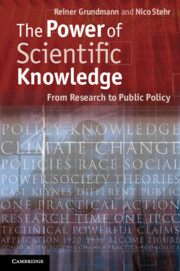3 - The mentors of the Holocaust and the power of race science
Published online by Cambridge University Press: 05 November 2012
Summary
National Socialism is the active and willful application of the findings of race science.
Rügemer (1938: 476)The questions we would like to address in this chapter concern the role of “race science” in the Holocaust. “Racial knowledge,” as it became established and efficacious both in the scientific community and in society in the first half of the last century, relied on various established scientific fields of the time: biology, natural history, and especially anthropology. In asking about the role of “racial knowledge” and race scientists as mentors of the Holocaust, we want to address a number of specific issues of interest to us in the context of inquiring into the power of knowledge. Aside from a brief history of the intellectual origins and the nature of race science, and its successful efforts to acquire scientific authority and legitimation by linking itself to established scientific practices and methods, we are interested in the practical role that race science attempted to play; the “triumph” it enjoyed in doing so; the ways in which this was accomplished; and why its most tragic consequences played out only in Germany.
The significance assigned to racial categories in science originated well before race science become a scientific discipline, with its own university chairs, research programs, research institutes, curricula and journals in the early part of the twentieth century. We have to go back to the origins of social science itself.
- Type
- Chapter
- Information
- The Power of Scientific KnowledgeFrom Research to Public Policy, pp. 65 - 118Publisher: Cambridge University PressPrint publication year: 2012



